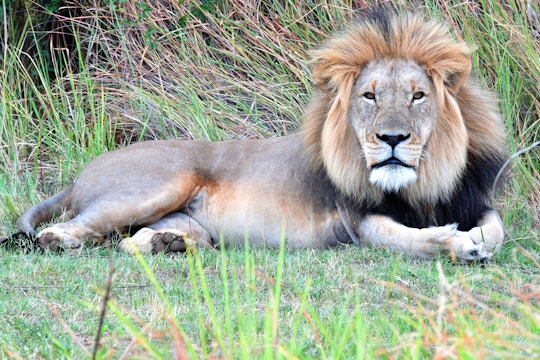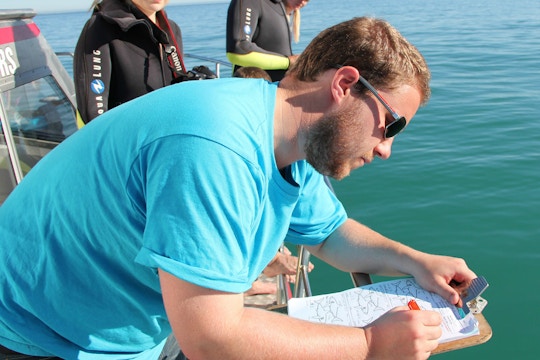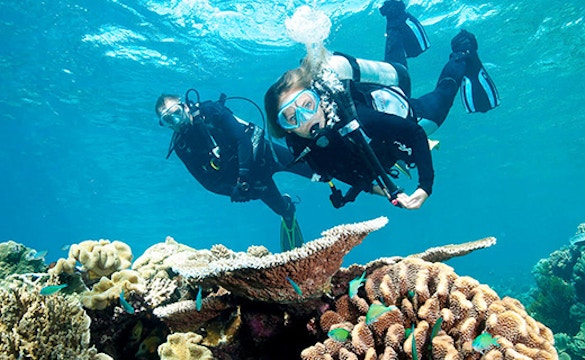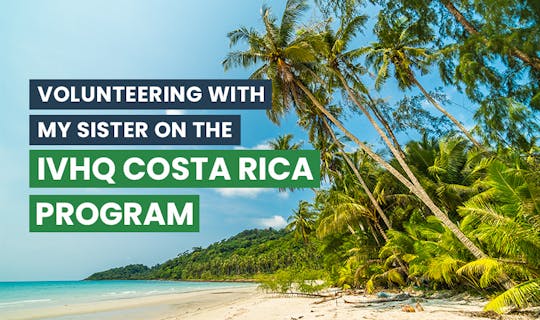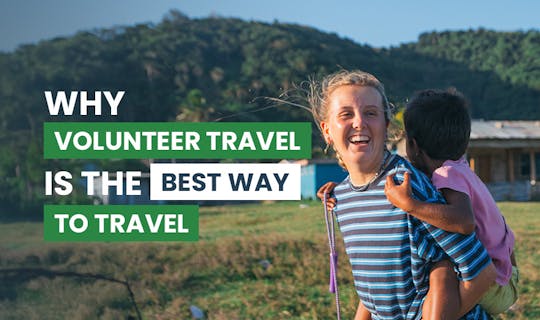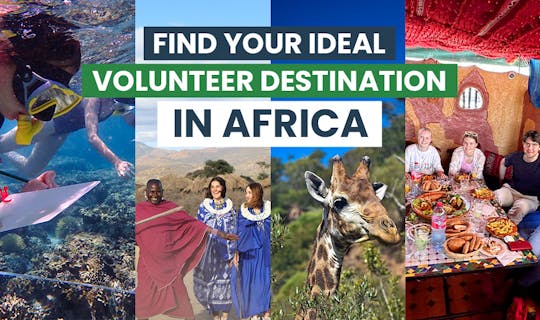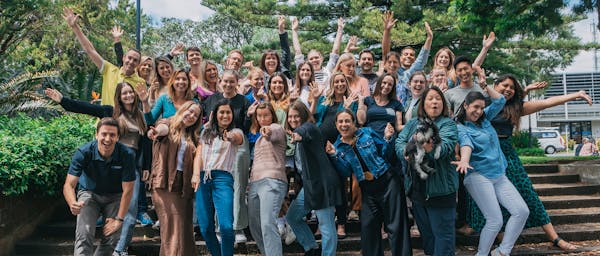I learned so many things from this experience. I learned about the beautiful culture in Costa Rica, I practiced my Spanish speaking skills, I learned more about sea turtles and about conservation and creating sustainable resources for sea turtle conservation. I would return to our program in the future and I would stay as long as possible. It was amazing!!!
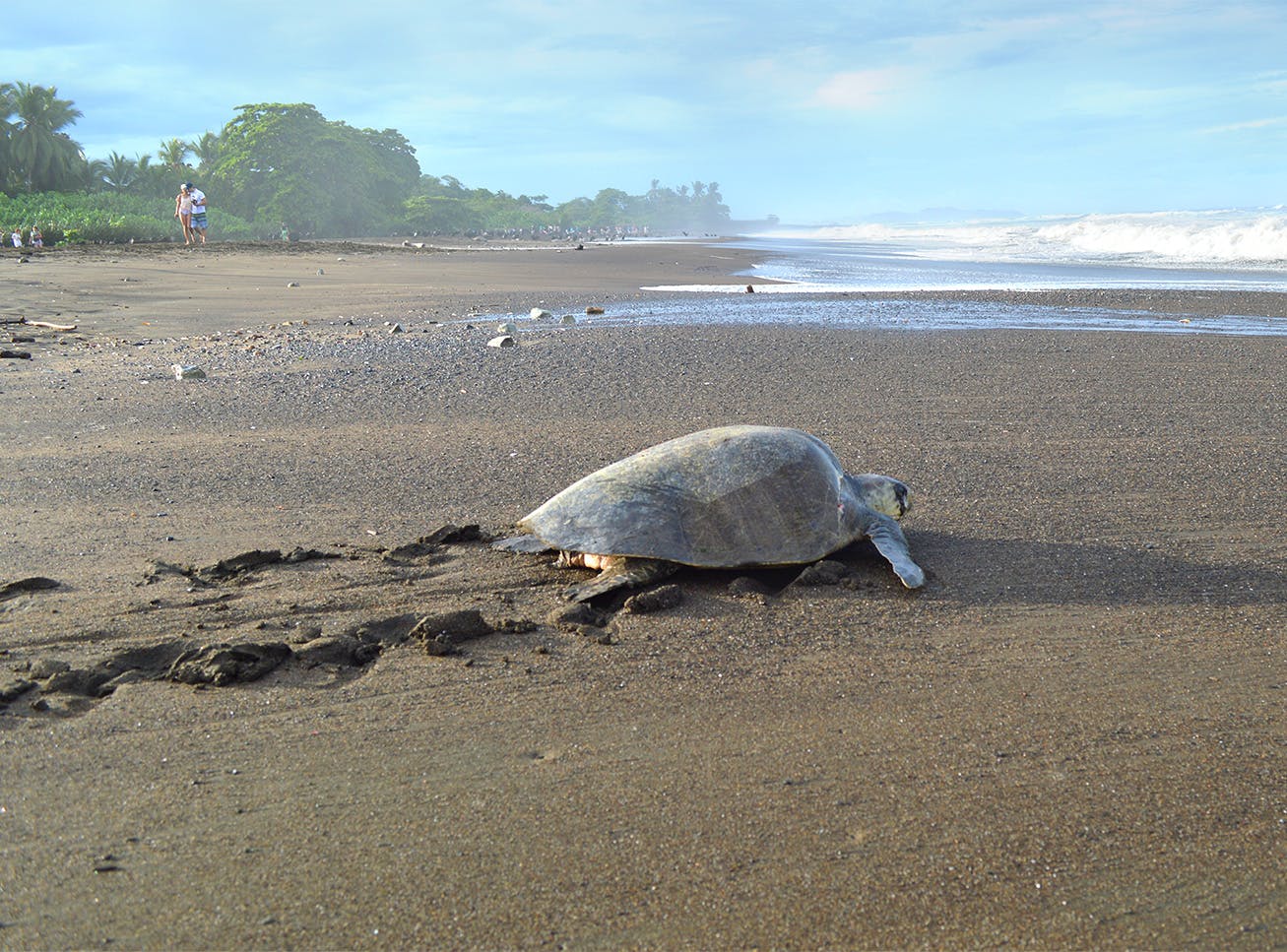
Turtle Conservation Volunteer Project - Costa Rica
Purpose
Start dates
Duration
Volunteer hours
Age
Accommodation
Who is going?
Group video calls
Once you have secured your place, join regular video calls to meet your Program Manager and other volunteers before your trip.
This program is ideal for:
Project details
Eager to do Turtle Conservation volunteering in Costa Rica? International Volunteer HQ’s Turtle Conservation project is an exciting opportunity for volunteers to support the survival of these magnificent and endangered creatures. Volunteers will gain skills and experience related to sea turtle and marine conservation while based on either the stunning Nicoya Peninsula or on the Caribbean Coast where the turtles come ashore during nesting season.
What to expect and how you'll make an impact
Turtles are truly extraordinary creatures and beloved all over the world, but the reality is that many species are critically endangered. Costa Rica is home to several types of protected turtle, including the Leatherback, Green, Olive Ridley and Hawksbill. While these turtles produce thousands of hatchlings, only a few reach adulthood. IVHQ’s Turtle Conservation project aims to support and protect living turtles and help more hatchlings survive in order to boost the turtle population and make sure they thrive for many years to come.
As a Turtle Conservation volunteer you will assist the local team with a range of tasks that contribute to the protection and survival of the turtles. You will likely work a combination of day and night shifts, and tasks will vary depending on the time of year. Your activities might include:
- Beach patrols
- Building hatcheries to protect eggs from predators
- Locating nesting female turtles and monitoring behaviour
- Collecting turtle eggs for protection measures
- Counting and tagging sea turtles
- Replanting mangroves
- Beach clean-ups
Conservation efforts wouldn’t be possible without the community around them, this is why volunteers also play a key role in supporting initiatives benefitting the community where projects operate. In addition to turtle-related tasks, volunteers can also expect to:
- Run informal English lessons for host families, local children and patrol guides
- Join light construction and beautification activities at local school and community centers
- Assist at local school’s nutrition center
It is also important to note that the work is fairly physical and the volunteer schedule is 5 to 6 days a week for 4 to 7 hours per day. Volunteers also need to be comfortable with walking up to 4 hours at night doing night patrols.
Why do Turtle Conservation volunteering in San Jose with IVHQ?
When you volunteer with turtles in Costa Rica you’ll be adding value to the local community, while also developing personally and professionally by:
- Helping to protect and increase the sea turtle population
- Living near remote beaches in Costa Rica
- Practicing your Spanish
- Learning about sea turtle care
- Gaining marine conservation experience
- Immersing yourself fully in the Costa Rican culture
- Getting off the beaten track & exploring rural Costa Rica
Volunteer requirements
- Volunteers under the age of 18 must be accompanied by a parent or guardian to participate in this program, and may be asked to provide additional documentation to the local team.
- Good physical fitness and ability to adapt to high temperatures and basic living conditions.
- All volunteers are required to speak fluent English, have adequate volunteer travel insurance and provide a criminal background check to IVHQ before departure.
Are you eligible to volunteer?
Submit a free application so we can confirm your eligibility and check availability for your preferred dates.
Not sure which program to join?
Get personalized recommendations >
Who is going?
Group video calls
Once you have secured your place, join regular video calls to meet your Program Manager and other volunteers before your trip.
Costa Rica photo gallery










































































What recent volunteers said about their IVHQ experience
The Turtle Conservation project in Costa Rica was absolutely amazing. If I could give you any advice, it would be that you should come prepared to work. This is a serious conservation program run by people who have dedicated her life to the protection and preservation of sea turtles. If you are approaching this as a vacation, you will be coming from the wrong headspace. Treat this like a job. Come to the project for the right reasons and take it seriously, and you will feel wonderful. The effort is absolutely worth it, and the local team is a joy to work with. And of course, enjoy the natural beauty and wonder of this project and region.
From my experience I would say I’ve grown a lot in the past two weeks. Although it was a short time, it felt like I’ve been there for too much and I didn’t wanted to end. I’ve had the greatest time in Costa Rica, I’ve made so many friends from around the world and gained experience and tools that would help me for my professional and personal life. Advice that I’ll give to someone is that don’t hesitate just go for it, you’ll not regret it, it’s once in a life experience and you’ll get a lot from it. Also it’s a really fun and nice way to help the community and environment and to spend time doing something completely different and exciting.
This program was amazing! I am so glad I went! I have never gone out of the country this long, let alone by myself. This was a great transition from college to the outside world. I was very happy I went and got to meet so many new people and experience the culture of Costa Rica. If I had to change one thing, it would be to book the adventure week. I didn't get to see much of Costa Rica, outside of my placement and the city. I am dying to go back and explore! It was a lot of hard work and hot, humid days, but I wouldn't change it for the world! Pura Vida!
When you try a project like this, you're not stepping "out of your comfort zone" - instead you're stepping into a "new comfort zone". That attitude can help so much. Being a little nervous or afraid is totally natural on a trip and project like this, so allow yourself to feel that way. You're making a huge difference even doing small things for both animals and people, and if you treat the accommodation and people as though it is your home and your family, things will go really well for you.
Judge the people you meet AFTER you meet and get to know them and have no preconceived notions about those you'll come in contact with. If you're trying to find who you are, challenge what you know, learn a new skill, and have an impact, it will work for you in this place. All you have to do is take it one moment at a time - and you'll leave the place having a new adventure you can always remember and talk about.
I learned so much about the culture and the turtles and I met so many amazing people! We had so much fun! It’s an amazing experience, an adventure of a lifetime! It changes the way you see other people, the world and even yourself in the best possible way! Just be open minded and flexible and take the next step! You won’t regret it!
To read all reviews, visit our reviews page.
Academic course credit

Academic course credit
Gain course credit from your college or university and meet your academic requirements when completing a volunteer abroad program with International Volunteer HQ!
Learn about course creditLocation

Location
There are a few locations for IVHQs Turtle Conservation volunteer project along the Nicoya Peninsula and the Caribbean Coast. Despite being on opposite sides of the country, these beautiful places both boast fantastic opportunities to get off the beaten track, see rare wildlife, enjoy breathtaking natural scenery and discover Costa Rica’s incredible coastlines.
The Nicoya Peninsula also has some of Costa Rica’s best surf beaches, while the Caribbean Coast offers the unique chance to volunteer in a place so untouched that it only bears the faintest traces of human development.
Arrival and orientation
Once you’ve registered for the program, please book your flights to arrive at Juan Santamaria International Airport (SJO) in San Jose on the Sunday before your start date. Upon arrival, a member of our local team will greet you at the airport and escort you to the volunteer accommodation in San Jose, where you’ll spend your first night or two. This stay is included in your Program Fee.
Your orientation will take place at the local team’s office in San Jose and will cover everything you need to know for your volunteer program in Costa Rica, including an introduction to the country and its customs, language training, rules and expectations, safety guidelines, travel opportunities, and details about your project and placement. You’ll also receive precise instructions about your travel arrangements to the project site. This is also a great opportunity to meet fellow volunteers and exchange contact information for weekend trips and social activities.
On Monday noon or Tuesday morning, you’ll travel by bus to your project location. The bus tickets will be arranged by our local team and are covered by your Program Fee.
If you’re already in Costa Rica before the program begins, we can arrange a local pick-up or you can meet our team in San Jose on the Sunday before your start date.
Volunteer schedule example
Weekdays
Please note, schedules can vary as projects take place in either the morning, afternoon or evening so volunteers should be flexible. A typical volunteer schedule might look like this:
| 7:00 - 8:30 AM: | Breakfast at the volunteer house or homestay. |
| 9:00 - 11:00 AM: | Join the local staff and receive a duty roster and plan for work. Some tasks may include, but are not limited to: Hatchery cleaning, painting and repairing the hatchery, measuring temperatures of nests. |
| 12:00 - 3:00 PM: | Lunch and free time. |
| 3:00 - 5:00 PM: | Resume placement work. Tasks can include but are not limited to: beach cleanup, maintaining a clean area for nesting turtles, collecting data and planting native trees along the beach, measuring erosion on the shoreline, maintenance and upkeep of plants/trees/mangroves. Community work tasks may also include English lessons and beautification projects. |
| 6:00 - 7:00 PM: | Dinner |
| 7:00 - 11:00 PM or 11:00 PM - 3:00 AM: | Night patrols. Patrolling the beach to spot nesting turtles, tag turtles, count eggs in nests. |
Weekends
Weekends on the Turtle Conservation project can be spent discovering the wonders of the natural environments of Costa Rica. While you won’t find many shops, restaurants or tourist attractions at the placement locations, there is still plenty to explore, see and do as well as boundless opportunities to relax and recharge.
On the Nicoya Peninsula you’ll find wildlife reserves, secluded surfing spots, palm-lined beaches, yoga classes and wellness resorts, while on the Caribbean Coast you can enjoy a spot of sportfishing and tour canals where you might glimpse toucans, monkeys, sloths, crocodiles and other exotic animals.
Accommodation and WiFi
On the Turtle Conservation project volunteers can expect either at a dormitory-style volunteer house or a local homestay near the Turtle Conservation project site. Typically the rooms are made up of single beds and bunk beds. Both types of accommodation have basic amenities where you will be sharing a room with up to 8 other volunteers of the same gender. However, we do have one conservation site that has mixed gender dorm rooms. Washrooms are shared by all volunteers, and have flush toilets and cold water showers. You will need to bring your own towel and toiletries, but bed linen will be provided.
Volunteers can expect to be in small, remote villages 6 - 9 hours outside of San Jose along the Nicoya Peninsula or Caribbean Coast. Some of these villages are surrounded by dense jungle and dirt roads. This can sometimes result in added dirt/dust in the accommodation which the host family will do their best to keep clean. Due to the tropical environment you can also expect a variety of critters (insects, spiders, etc.) to be present.
WiFi is unavailable at the Turtle Conservation site, so we recommend purchasing a local SIM card for an unlocked mobile phone during your program orientation in San José if you want to keep connected.
Meals
Volunteers on the Turtle Conservation project are served three meals a day. These will be mainly Costa Rican style dishes and light vegetarian meals like:
- Rice, beans, plantains fresh fruit and vegetables
- Gallo Pinto - rice and beans that are pre-cooked and then fried together with other ingredients, typically vegetables
Breakfast can include fresh fruit, toast, and eggs. Tea, coffee, and toast will be available throughout the day. Purified drinking water is also available in the volunteer house; we do not recommend that you drink the tap water.
If you have special dietary requirements, please let us when you apply so that we can make arrangements for you. However, you should not expect to eat as you normally do at home and need to be as flexible as possible. We will do our best to see that you are well taken care of.














Pricing
Spots are limited. For a Registration Fee of just US$299 (approximately AU$504) you secure your spot and unlock all our preparation and training tools.
You don't need to worry about paying your Program Fee until you get closer to your start date.
Duration |
Program FeeDue 30 days before you start, or within 48 hours if you register inside of 30 days. Covers the cost of hosting you.
|
|---|---|
| 2 weeks | $1,045 Equivalent to $75/day |
| 3 weeks | $1,450 Equivalent to $69/day |
| 4 weeks | $1,810 Equivalent to $65/day |
| 5 weeks | $2,120 Equivalent to $61/day |
| 6 weeks | $2,430 Equivalent to $58/day |
| 8 weeks | $3,050 Equivalent to $54/day |
| 10 weeks | $3,670 Equivalent to $52/day |
| 12 weeks | $4,290 Equivalent to $51/day |
| 16 weeks | $5,530 Equivalent to $49/day |
| 20 weeks | $6,770 Equivalent to $48/day |
| 24 weeks | $8,010 Equivalent to $48/day |
- All programs attract a Registration Fee of US$299 (approximately AU$504) in addition to the Program Fee. This covers all pre-departure support services.
- A 5% international banking fee is added at point of payment.
- Recommended spending money: Volunteers in the Turtle Conservation in Costa Rica generally find US$100 - US$150 per week to be sufficient for expenses.
- Breakfast, lunch, and dinner
- Airport pick-up
- Transportation from San Jose - Project Location - San Jose
- US$95 per week for supervision, materials and logistics involved in the project
- Accommodation
- 24/7 in-country support
- In-country program orientation
- Pre-departure support from your Program Manager
- Personalised preparation tools, guides and check lists
- Access to IVHQ’s preferred insurance and flights partners
- Discounts on language lessons
- Discounts on travel and tour add-ons
- Certificate of International Volunteer Service
Learn more about what's included in your IVHQ Registration Fee and Program Fee.
- Return to the airport when your program finishes
- Flights
- Visa (if required), travel insurance (mandatory), vaccinations, criminal background check.
- Personal spending money for snacks, laundry, public transportation, drinks and leisure activities during your free time.
Popular add-ons & experiences in San Jose
Take your volunteer experience to the next level with these popular add-ons and experiences. Explore your options below and learn how to book them once you've been accepted onto the IVHQ San Jose program.
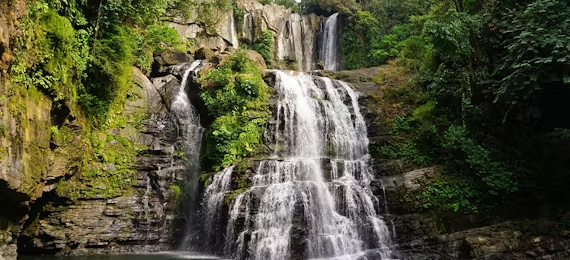
Immerse yourself in Manuel Antonio’s stunning natural beauty and thrilling activities on this 6-day adventure
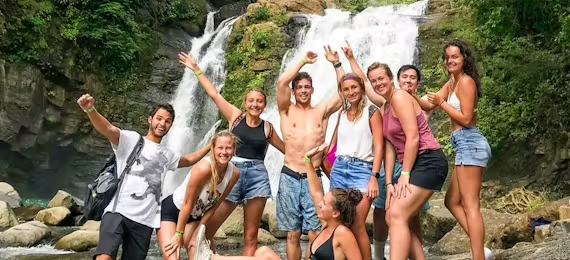
Embark on a full-day adventure exploring La Paz Waterfall Gardens, an animal sanctuary, and a Poas Volcano Tour, followed by a Coffee Farm experience.
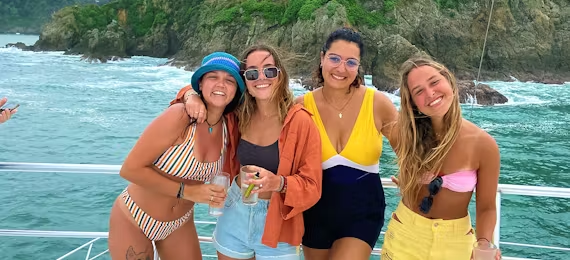
Experience a comprehensive 6-day Mini Adventure, featuring Arenal Volcano, the Britt Coffee Tour, La Paz Waterfall Gardens, whitewater rafting, and a visit to the pristine Tortuga Island.
Spanish language lessons
No need to be fluent in Spanish to join the IVHQ Costa Rica program—but imagine how much more you can get out of your experience by learning some basic Spanish! Our tailored language lessons are designed to meet you at your current level and help you feel more confident in everyday conversations. Classes run Monday to Friday, and the best part? They’re super affordable and available exclusively for IVHQ volunteers. Dive deeper into the culture and make your experience truly unforgettable!
Online lessons:
- 1-hour Private Classes: US$75 (approximately AU$126) per week
San Jose Language Lessons:
- 2-hour Small Group Classes: US$158 (approximately AU$266) per week
- 1-hour Private Classes: US$207 (approximately AU$349) per week
- 2-hour Private Classes: US$402 (approximately AU$678) per week
Check what's required to visit Costa Rica
Safety and support
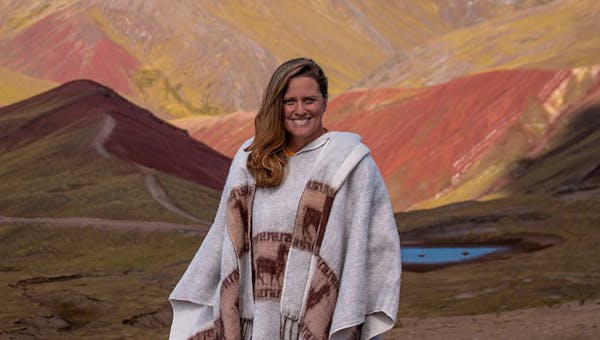
Safety and support
IVHQ follows best practice and industry-leading health and safety procedures, which are regularly reviewed and optimized as part of the B Corporation recertification.
- All volunteers encouraged to complete our interactive pre-departure training.
- All local teams trained on best practice volunteer management & First Aid.
- All IVHQ programs are required to adhere to IVHQ's Risk Management Policy.
- All volunteers have access to 24/7 in-country support from our local team.
Essential country information
Essential country information
| Capital | San Jose |
| Population | 5 million |
| Languages | Spanish |
| Currency | Costa Rican Colón (CRC) |
| Time zone | UTC−06:00 |
Weather and climate: Costa Rica is unequivocally a tropical country. Although you get much cooler temperatures in the mountains, the average annual temperature for most of the country lies between 71°F (21.7°C) and 81°F (27°C). The coolest months are from November through to January, and the warmest months are from March through to May. San Jose stands at approximately 1170 meters altitude and has a mean annual temperature of 69°F (20.6°C).
Latest blog posts
Other projects you may be interested in


